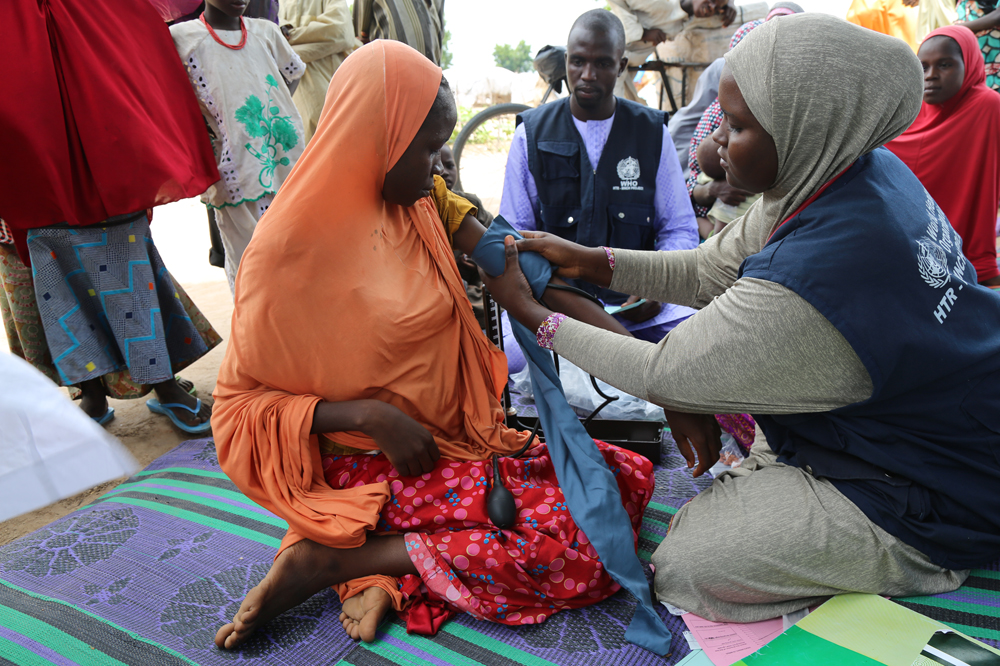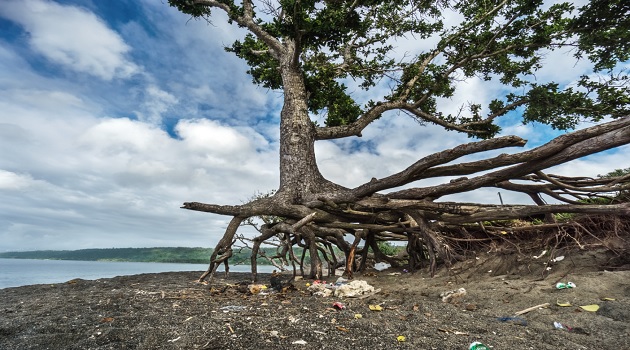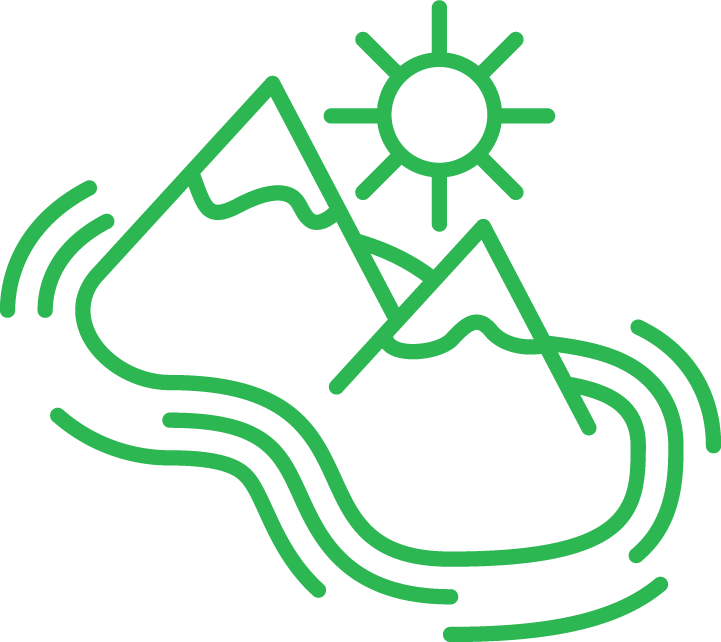Protecting people from the health impacts of climate-related risks

Improve resilience of health systems to climate variability and change
As an example, climate-resilient water safety improved for:
- 2.5 million people in Ethiopia using 50 water supply systems, 2020
-280 000 people in Nepal, 2020
-605 000 people in Bangladesh, 2020
-240 000 in urban areas of the United Republic of Tanzania, and 6200 people in rural areas, 2017
Simple, low-cost interventions, such as building retaining walls or ditches, prevent contamination of drinking-water during flooding; and planting indigenous trees protects the water table in Ethiopia, 2018.

.jpg?sfvrsn=6706eada_9)
As an example, climate-resilient water safety improved for:
- 2.5 million people in Ethiopia using 50 water supply systems, 2020
-280 000 people in Nepal, 2020
-605 000 people in Bangladesh, 2020
-240 000 in urban areas of the United Republic of Tanzania, and 6200 people in rural areas, 2017
Simple, low-cost interventions, such as building retaining walls or ditches, prevent contamination of drinking-water during flooding; and planting indigenous trees protects the water table in Ethiopia, 2018.

For example, the assessment in:
- Lao People’s Democratic Republic studied the links between climate change and water-related and vector-borne diseases; water, sanitation and hygiene; mental health; malnutrition; injury and disability; and sudden increases in health service use.
- Madagascar highlighted the health impacts of flooding, cyclones, drought, heatwaves and cold spells, 2015
Health national adaptation plans are informed by the assessments and include:
- Timor-Leste plan for health sector adaptation to climate change finalized in wide consultation with partners, 2019
- health national adaptation developed and endorsed in Nepal, 2018
- climate change action plan for public health officially endorsed by the Ministry of Health in Cambodia, 2020

For example, the assessment in:
- Lao People’s Democratic Republic studied the links between climate change and water-related and vector-borne diseases; water, sanitation and hygiene; mental health; malnutrition; injury and disability; and sudden increases in health service use.
- Madagascar highlighted the health impacts of flooding, cyclones, drought, heatwaves and cold spells, 2015
Health national adaptation plans are informed by the assessments and include:
- Timor-Leste plan for health sector adaptation to climate change finalized in wide consultation with partners, 2019
- health national adaptation developed and endorsed in Nepal, 2018
- climate change action plan for public health officially endorsed by the Ministry of Health in Cambodia, 2020
Climate and weather information integrated into health surveillance and early warning systems to predict outbreaks, such as:
- cholera in Bangladesh and Malawi, 2020
- malaria in Mozambique, 2020
- dengue fever in Myanmar and Timor-Leste, 2020


Climate and weather information integrated into health surveillance and early warning systems to predict outbreaks, such as:
- cholera in Bangladesh and Malawi, 2020
- malaria in Mozambique, 2020
- dengue fever in Myanmar and Timor-Leste, 2020

Action towards climate-resilient and environmentally sustainable health care facilities, for example:
- in 62 health care facilities in Lao People’s Democratic Republic, 2020
- assessments conducted in 25 health centres in Cambodia with focus on climate-resilient WASH, 2020
/feature-stories/cambodia-4.jpg?sfvrsn=19d9a2f1_7)
Action towards climate-resilient and environmentally sustainable health care facilities, for example:
- in 62 health care facilities in Lao People’s Democratic Republic, 2020
- assessments conducted in 25 health centres in Cambodia with focus on climate-resilient WASH, 2020
Action to build climate-resilient health systems in small island developing states, includes:
18 country profiles on health and climate change completed to inform evidence-based decision-making when strengthen the resilience of health systems, 2021
US$ 33-65 m funding mobilized to small island developing states to strengthen the resilience of health systems, health-care facilities, schools and communities to climate change

Action to build climate-resilient health systems in small island developing states, includes:
18 country profiles on health and climate change completed to inform evidence-based decision-making when strengthen the resilience of health systems, 2021
US$ 33-65 m funding mobilized to small island developing states to strengthen the resilience of health systems, health-care facilities, schools and communities to climate change

Quality criteria for evaluating climate-informed early warning and response systems for infectious diseases developed
WHO approved as a Green Climate Fund Readiness Delivery Partner
– resulting in 7 Caribbean countries and Argentina securing US$ 1.3 m funding
WHO guidance provides a set of interventions to improve climate resilience while decreasing the environmental impact and carbon footprint of health care facilities


12 countries trained in developing and implementing climate-informed health early warning systems
Support provided
to integrate information on climate and weather
into health surveillance and early warning systems to predict outbreaks of climate-sensitive diseases

WHO technical series for
assessing current and future vulnerability to specific health risks
beginning with undernutrition

Global plan of action on climate change and health in small island developing states

Guide and case studies for
developing climate services for health
with the World Meteorological Organization

WHO guidance for water safety
planning to improve the resilience of water supplies
to climate variability and change published

Special initiative on climate change and health
in small island developing states launched at the
23rd Conference of the Parties (COP23) to the United Nations Framework Convention on Climate Change

